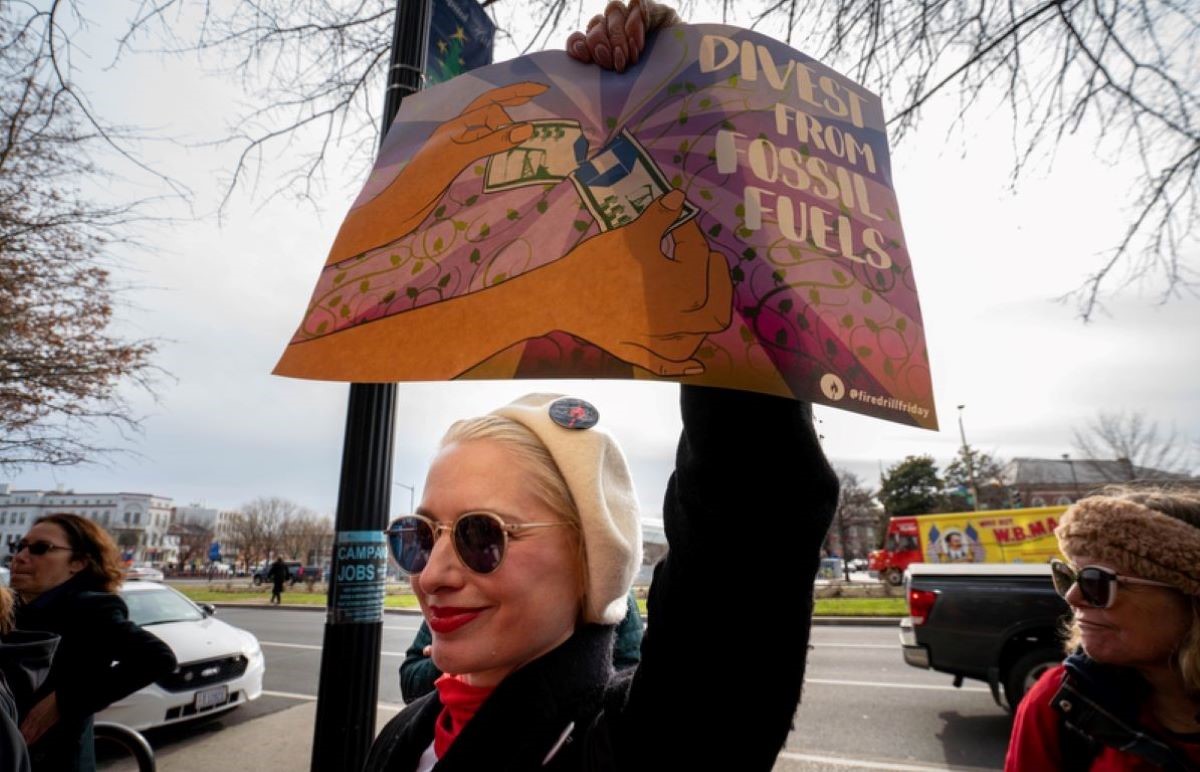In 2008, the big banks crashed the economy through reckless, predatory lending. Twelve years later, they’re working to do something even worse: crash the planet.
With every dollar they invest in fossil fuel companies, big banks and asset managers make the climate crisis worse. And they’ve invested a lot of dollars: In the years since the world agreed to limit warming to “well below” 2 degrees Celsius at the 2015 Paris climate talks, big banks have poured $1.9 trillion into underwriting and lending to fossil fuel companies. If you stacked that money in $100 bills, it would reach almost five times higher than the orbit of the International Space Station. And not one penny of that investment is compatible with preventing catastrophic warming.
That’s why the Sierra Club and its allies are launching a new campaign: Stop the Money Pipeline. We’re going after the ugliest, most dangerous pipeline of them all -- the money pipeline -- so we can stop all the other ones from being built. Fossil fuel companies can’t continue their dirty business without backing from big banks like JPMorgan Chase, asset managers like BlackRock, and insurers like Liberty Mutual -- all top financiers of climate catastrophe.
With little chance for climate action in Washington until we can get rid of Trump and his Senate henchmen, we're taking action at the state and local level and turning the heat up on Wall Street. We’re demanding that our targets divest from companies that extract and burn fossil fuels or engage in climate-destabilizing deforestation. Because it is past time for them to stop making money by betting against our future and to start taking responsibility for the consequences of their reckless investments: lost lives, lost homes, lost species.
Big banks know that their customers care about having a future on a habitable planet. They’ve even posed as climate leaders to persuade us that they care, too. But so far, their investments show the opposite. Chase, for example, has sunk $196 billion into fossil fuel companies since the Paris Agreement was adopted. As large a sum as that is, it represents just about seven percent of Chase’s business. It could, and must, divest -- and reinvest those funds in renewable energy and green infrastructure, moving us toward a more sustainable economy.
Earlier divestment campaigns, often led by youth or Indigenous activists, have shown just how powerful the tactic can be. They’ve complemented efforts to replace coal plants with clean energy and shown investors that financing coal is unprofitable as well as unsustainable. Shell recognizes divestment as a “material risk” to its business. The Stop the Money Pipeline campaign will draw together many of the organizations already involved in divestment work, multiplying our power.
We’re building momentum. The CEO of BlackRock, who has faced criticism of the company’s lack of climate leadership for nearly two years, announced that he would be placing “sustainability at the center of [BlackRock’s] investment approach.” The company’s actively managed holdings will no longer include shares of companies that earn more than 25% of their revenue from thermal coal. That’s one of the largest ever divestments from coal. Importantly, BlackRock is also pledging to offer more climate-friendly investment funds and use its enormous shareholder power to push other companies to do more on climate.
But it’s just the beginning. We’re planning major mobilizations over the next six months, leading up to the 2020 UN climate talks, which will focus on the role of finance. Money talks, and we’re going to shape its message. Sign up here to get involved.
